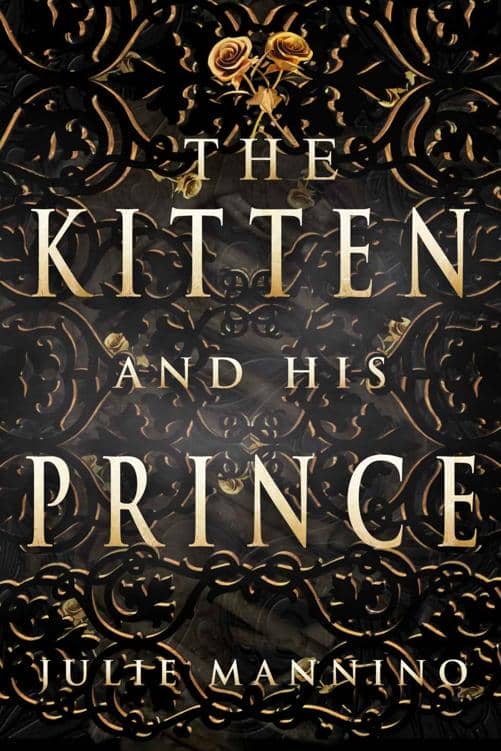Chapter 25
The journey to Pemberley had been easy, at least as far as the roads and weather went. Georgiana was not inclined to engage in much conversation—at least with Darcy; she showed no such reluctance when it came to Mrs Annesley. His sister grew less petulant the closer they drew to Pemberley, and he supposed her pleasure at being home was finally stronger than her upset that he had given her little say in the decision to quit town when they did.
Darcy would never say it aloud, but he blamed Fitzwilliam for a portion of the distance between himself and his sister. He also found himself giving greater and greater importance to Bramwell’s assertion that Georgiana would do better if they—especially Fitzwilliam—did not coddle her so much. It was what he wanted to believe because he continued to cling to the hope that Georgiana would change her opinion of his marrying Elizabeth. She only had to permit herself to trust they would keep her safe from Wickham. If his sister showed any improvement along these lines, he would immediately set out to earn Elizabeth’s forgiveness and remind her of the reasons she had once loved him and anticipated a joyful future as his wife. Only her marriage to another would stop him from dreaming of such an outcome to their tortuous history.
A fortnight after they arrived at Pemberley, they welcomed the earl, the countess, and Fitzwilliam. Lord and Lady Romsley would spend a week with them before settling at Romsley Hall for the summer. Fitzwilliam would be obliged to return to town almost at once, and this allowed him to spend an interval with Georgiana; it might be later in the summer or even autumn before they were reunited. The earl reported that Bramwell had elected to extend his time in London and travel north with the Reeds, whose estate was in Shropshire.
“If he thinks I do not know what he is about, he is a fool, and I would hate to think that of my heir,” the earl said at dinner on the first night.
Fitzwilliam regarded his father, a puzzled expression on his face. It surprised Darcy that he had not yet discerned that his brother was in love with Rebecca, and he derived an odd satisfaction from it, given his still-simmering resentment. He regretted the feeling; he had once considered Fitzwilliam his dearest friend. With luck, he would be able to claim it again one day.
If I put more effort into it and saw the situation through his eyes, it might happen sooner. Then again, he could try to understand my perspective and at least show a little sympathy.
Darcy wrote to Mrs Reed and suggested she, Mr Reed, and Rebecca visit later in the summer. Georgiana and Rebecca were exchanging letters regularly, and he wished to do everything he could to encourage their friendship. He attempted to interest his sister in making friends with some of the young ladies in their vicinity. Unfortunately, Georgiana did not like to leave the estate, and whenever one of the ladies came to call, she said as little as possible. He knew some of that was due to her natural reserve, and he dreamt of how much better she would feel if she had Elizabeth by her side. Elizabeth would be such a supportive, sympathetic sister—especially since she knew Georgiana’s entire history—and not even the tiniest part of Darcy doubted that Georgiana would improve remarkably under her care.
Yet who knows when, or even if, they will ever be in company again. I do not imagine it will be until Georgiana is out, and by then, I shall surely have lost all opportunity to reconcile with Elizabeth.
The thought prompted Darcy to close the treatise on sheep rearing he had been reading and turn his mind to the more demanding activity of reviewing the account books. He had to find a way to stop dwelling on Elizabeth, and especially he had to stop feeling that Fitzwilliam and—worse—Georgiana were to blame for their separation. After all, Darcy had agreed not to pursue her. Bramwell might be correct that it would have been wiser to tell Elizabeth the truth from the very beginning, but he had not, and he must bear the consequences of his actions.
I shall use the summer to find a way to accept that she is lost to me forever. This dream of earning her forgiveness and love and that, somehow, we shall be able to marry is doing me, Georgiana, Fitzwilliam, and even Elizabeth no favours. He could not lie to himself that Elizabeth had not seen him staring at her in town, and likely he had caused her some discomfort. Mr Grey had begun giving him dark looks, suggesting he had also noticed. If she can find happiness with him or another man, I must wish her well.
In the first few weeks of their tour, Jane, Bingley, and Elizabeth viewed three estates. There was nothing particularly wrong with any of them, but likewise, there was nothing remarkable either. Along the way, they stopped here and there to partake of local sights of interest, but the only significant break on their journey was at Graystone Manor.
Mr Grey welcomed them warmly, and if there was something more to his greeting of Elizabeth, she pretended not to notice. When she was alone later that day, she questioned why she had acted thus.
If I am certain I could never care for him enough to accept his proposal, I must find a way to tell him. If I am unwilling to do so, then I must open my mind and my heart fully to the possibility of a future with him.She still might decide she could not become his wife; for that matter, he might never choose to propose. But she knew that was where his interest lay at present, and it frustrated her that, no matter how much she tried, she could reach no firm decision about what she hoped their future would be. She worried she would injure his feelings.
During the nine days they were at Graystone, Elizabeth explored the estate and neighbourhood with Mr Grey. Often, Jane and Bingley were with them, but they also left Mr Grey and her to themselves so that they could get to know each other better without interference. The house was well-maintained and decorated in a manner that would offend no one, unless they were very particular. Elizabeth could imagine how she might change this room or that to make it more to her personal taste, but there was nothing she disliked. The gardens were a little too orderly for her, but the grounds included a wide, picturesque stream and a copse, and the nearest town was pleasant and contained a good variety of shops. Mr Grey spoke well of his neighbours and those he regularly met at dinners and other social events.
As much as Elizabeth admired his estate, she admired the man even more. He was handsome, friendly, well-read, responsible, and respectful. He would make an excellent husband and father, and it would be a very good match for her from a practical point of view. In addition, he and Bingley were close friends, and Jane liked him. Should Elizabeth marry him, she was certain there would be no impediment to seeing her dearest sister.
I would be a fool to let a daydream rob me of a life with such a man. I may not be in love with him at present, but there is no reason why I should not fall in love with him. Had I never met Mr Darcy, or if we had not encountered each other again last summer, it is probable I would have by now. Indeed, I believe I would be floating ten feet off the ground to think that this man cared for me so much that he wished to marry me despite my lack of fortune and connexions. I will conquer my feelings for Mr Darcy, then perhaps I could love Mr Grey.
Because she was alone, she whispered, “Why must it be so hard?”
The night before the Bingleys and she were to leave, Mr Grey and Elizabeth went for a walk after dinner. It was not excessively hot, and the sun was low in the sky, the last light of the day just peeking through the trees. They remained on the terrace and the gardens with the clearest paths.
“I wish you could stay longer,” he admitted. “I hope you have enjoyed your time here.”
“I have. Your estate is wonderful, and the company is even better.”
He had such a look of joy on his face that Elizabeth regretted having spoken so warmly. It might lead him to believe she was ready to receive his proposal. His next words suggested as much.
“Perhaps if there was a good reason for it, Bingley and your sister might be willing to extend your stay.”
She forced a laugh, infusing it with as much humour as she could, and sought for a way to hint to him that she required additional time before being able to commit herself. “Oh, I do not know that I could ask it of them. They are eager to find a new home. Netherfield Park is lovely, but I am confident they will find a situation more to their liking, one in which they will raise their children and spend their lives. Do you know that they met soon after Bingley let the estate? It was evident that they liked each other at once. They met at an assembly, and they danced twice!” She laughed again. “It was much talked of, and many people were convinced they would marry before they had known each other two months, my mother included. Events transpired that separated them for a time, but they were engaged soon after meeting again last September. As much as I know my sister was saddened during the time they were apart, on the whole, I think they are better off for it. I have always believed a couple should know each other at least half a year before committing themselves. It gives them an opportunity for sober reflection and for first impressions to be confirmed.”
His response was long in coming, and he spoke slowly, suggesting he was disappointed. “I believe I do, and that is wise of you, Miss Bennet.”
She slipped her arm around his. “Will you tell me more about the herb garden? I seem to recall you mentioning it was a special interest of your mother’s.”
He nodded, and as they continued to stroll, they talked of the garden, his late parents, and her interest in plants of all sorts. It was full dark before they returned to the house. Jane sent her a questioning look. Elizabeth did not expect either gentleman would recognise its import, but she knew her sister was silently asking whether Mr Grey had proposed. In reply, Elizabeth gave a quick shake of her head.
If he took her at her word, she had delayed a proposal until September, coincidentally a year after she had expected to receive one from a different gentleman.
 Fullepub
Fullepub 



